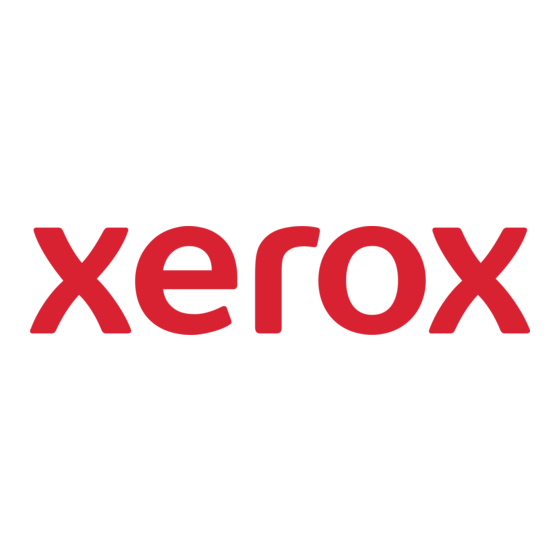- ページ 20
ソフトウェア Xerox DocuPrint 115のPDF 操作マニュアルをオンラインで閲覧またはダウンロードできます。Xerox DocuPrint 115 34 ページ。 Tape client job submission guide enterprise printing system
Xerox DocuPrint 115 にも: 操作マニュアル (38 ページ), 仕様 (2 ページ), リファレンス・マニュアル (2 ページ), プランニング・マニュアル (20 ページ), クイック・リファレンス (2 ページ), 補足マニュアル (48 ページ)

Product overview
Table 1-1
Point mode required to process supported data streams
Acceptable
PCL5e PCL6 PostScript
data stream
Required
EPS
print mode
or
NPS
Differences in supported software features
1- 4
The following table shows the print mode (EPS, NPS, or IPS) in
which the printing system must be operating to process specific
data formats.
PostScript
Level 3 with
Level 2
EPS
NPS
EPS
NOTE: When the system is printing an IPDS job using DocuPrint
NPS/IPS, PostScript and PCL data streams can be spooled in the
background. If a PostScript or PCL job is printing, the NPS/IPS
software reports a not-ready condition back to the host until the
printer becomes available.
*IPDS is not available as of this printing for the DocuPrint EPS
systems.
Because of differences between NPS/IPS and EPS in regard to
the PostScript, PCL, ASCII, and VIPP interpreters, some features
are supported in NPS/IPS mode that are not supported in EPS
mode, and vice versa. Listed below are some features that are
supported differently by the two different operating systems.
EPS only:
•
Queue overrides
•
Multiple queues
•
DocuSP job ticket
•
178 default PostScript fonts
•
Level 3 PostScript interpreter
NPS/IPS only:
•
Cycle forms
•
xgfnub (ability to add a VIPP Start command in front of a file)
•
NPS/IPS job ticket
•
Two-sided (duplex) tab stock printing
•
Virtual printer/document attributes
ASCII
VIPP
PDF
EPS
EPS
or
or
NPS
NPS
NPS/IPS Extension Operations Guide
TIFF
LCDS IPDS*
EPS or
EPS
PS or
NPS
IPS
